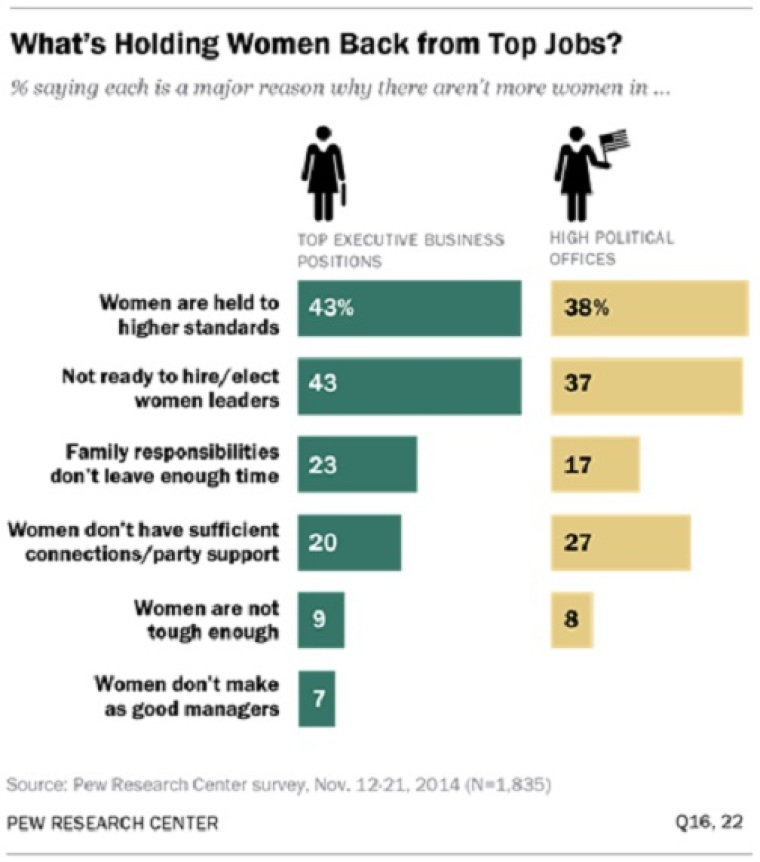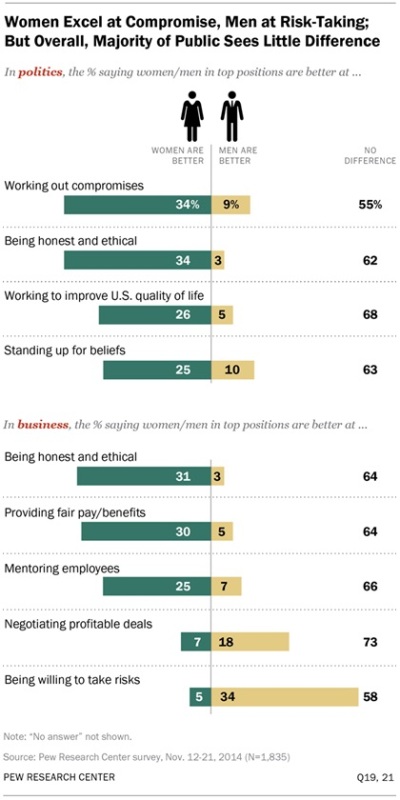Women are ready for leadership, are Americans ready for them to lead?

WASHINGTON (Christian Examiner) -- A change in the landscape of women at work over the years, shows women are equipped and ready for leadership roles according to a Pew Research Center survey But the limited number of actual women in leadership poses the question, are Americans ready for them to lead?

When asked about specific traits, more than half and up to three quarters of Americans see no difference in men's and women's abilities to lead. But among those who perceive a difference, overwhelmingly women are named as better at working out compromises in politics (34 percent for women and 9 percent for men), being honest in business (31 percent to 3 percent), and five other measures out of nine total. Men were noted as being better in two areas (both business related): negotiating (18 percent to 7 percent for women) and risk taking (34 to 5 percent advantage).
According to Bloomberg Businessweek, there are a record number of women in politics at the local, state and national levels, and, at least 26 female CEOs of Fortune 500 companies today compared to 1995 when there were no females in this group.
But even with these advancements, Pew's findings suggest women still face higher expectations when it comes to advancing in the workplace.
Pew reported 52 percent of women it surveyed perceived "higher standards" as the reason for the lack of females in top business positions. Only 33 percent of men hold the same view about women being kept out of the boardroom. Overall, about four in ten Americans claimed there were "uneven expectations" that required women to outperform their male peers.
About 43 percent of this same survey cohort said the biggest reason why "women are not in top leadership roles in business" is due to a lack of readiness on the part of boards of directors to see women at the helm of corporations. This feeling persists despite that fact that "Americans find women indistinguishable from men on key leadership traits such as intelligence and capacity for innovation, with many saying they're stronger than men in terms of being compassionate and organized leaders," the online report stated.
Also, gender stereotypes persist.
For example, among those surveyed, most, 54 percent, said men would do a better job running a professional sports team, while just 8 percent said women would be better at this. A 46 percent "plurality also give men the edge when it comes to running a large oil or gas company. But the public is two and a half times more likely to say a woman, rather than a man, would do a better job running a major hospital or a major retail chain."
These same stereotypes, however, seem to open the door for women in politics, with Americans viewing women as more honest and better at working out a compromise, according to the report. Perhaps most surprising is that 73 percent of survey participants claimed they expect to see a female president in their lifetime.
In the 114th Congress sworn in this month, 104 women, a record number, will be serving in the House and Senate—making up 19 percent of Congress, about double the share from 20 years ago.
While women still are far outnumbered as CEOs, the future looks brighter because of the growing number of females among the directors of corporate boards—17 percent in 2013 compared to 10 percent in 1995—which is the body that chooses a company's leaders.